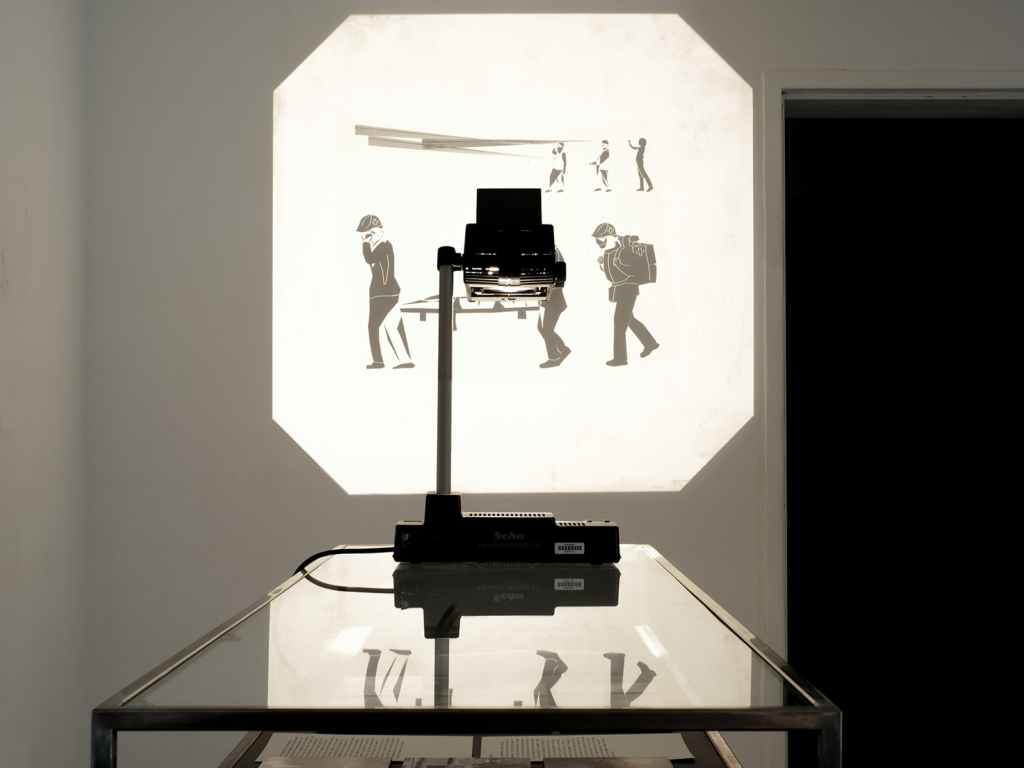The Public of Culture
As part of the BMBF-funded PLan_CV project, a career cluster has been established at the Faculty of Cultural Sciences to expand inter-university cooperation. Within the framework of the cluster, researchers from the TH Köln are working together with the University of Cologne and the Academy of Media Arts Cologne to develop a practice-oriented cultural science.
The Career Cluster investigates how the genesis and circulation of knowledge in cultural studies, also with regard to the research-based design of artifacts, can be further developed through the creation and inclusion of public spheres that go beyond academia and higher education. Cultural studies-oriented researchers and designers often still assume top-down models – terms such as “outreach,” “mediation,” “transfer,” or “scholarly communication” are symptomatic of this –that largely understand the exchange relationships between science and the public as a one-way process. However, publics are not passive entities, but include all those who participate in cultural productions – as producers as well as recipients.
We understand public spheres performatively as aesthetic-political practices. The cluster aims to make visible and expand collaborations with the broad arsenal of actors who have always contributed to cultural production, be it in the form of texts, documents, images, objects or spaces, as well as other artifacts. We are interested in how collaboration can find new ways to identify, address, and communicate socially relevant research topics.
We want to uncover the often hidden structures and conditions under which collaborative processes are constituted and carried out. This concerns internalized rule systems as well as symbolic orders and knowledge hierarchies that are negotiated (implicitly or explicitly) within collaborations. The cluster explores what conditions need to be created, what rules need to be defined, and what mechanisms need to be understood in order to develop collaborative cultural studies. We want to explore the reasons for the marginalization of publics, design concepts of empowerment, and learn to analyze and moderate the conflicts around their implementation in the institutions of the future. Only in this way, we believe, can a methodologically substantial new cultural studies be designed and established.
The cluster’s questions will be pursued and further developed in the context of jointly conceived conferences, exhibitions and publications.
On November 8, 2023, the inter-university symposium “Remembering with the Public: Towards a Cooperative Cultural Sciences” will take place. The aim of the event is to generate new knowledge about the dynamics of collaborative work in researching and shaping memory cultures.
On June 6–8, 2024, the international and interdisciplinary conference “Intervening Drawing: Distillation of Form as an Act of Leaning and Social Practice” took place. The aim of this event was to generate knowledge about new forms and practices of collective drawing that are perfectly suited to initiate acts of participation and resistance. This kind of drawing practice connects situations and actions and can contribute to the empowerment of marginalized groups and the development of social and ecological understanding.
Members
- Dr. Philipp Bojahr (Cologne Game Lab, TH Köln)
- Prof. Dr. Gabriella Cianciolo Cosentino (Department of Art History, University of Cologne)
- Sonja Gaedicke, M.A. (Institute for Gender Studies, TH Köln)
- Prof. Marco Hemmerling (Faculty of Architecture, TH Köln)
- Prof. Dr. Carolin Höfler (Köln International School for Design, TH Köln) [Spokesperson]
- Prof. Dr. Sandra Kurfürst (Institute of Ethnology, University of Cologne)
- Prof. Dr. Ulrike Lindner (Institute of History, University of Cologne)
- Prof. Dr. Regina Urbanek (Cologne Institute of Conservation Sciences, TH Köln)
- Dr. Alexander van Wickeren (Scientific Coordination, Faculties of Cultural Sciences & Architecture, TH Köln)
- Prof. Andreas Wrede (Köln International School for Design, TH Köln)
- Prof. Dr. Martin Zillinger (Institute of Ethnology, University of Cologne)
